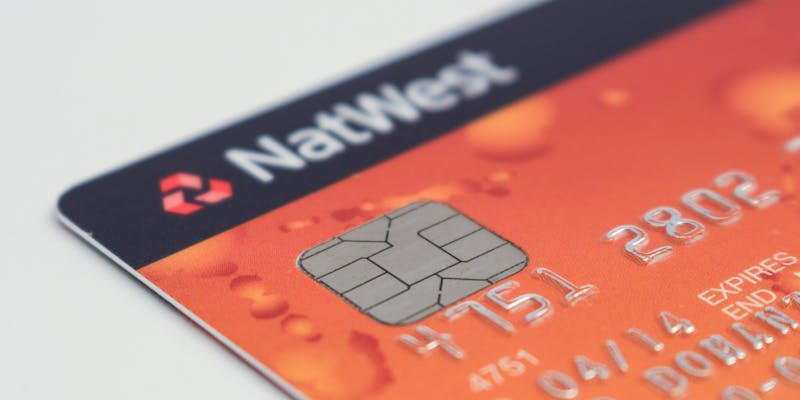Getting your first credit card can feel daunting, but it doesn't have to be. Understanding the basics can help ease the process and set you up for success. In this guide, we'll walk you through how to get a credit card for the first time, covering everything from credit scores to the application process. By the end, you'll have a solid grasp of what to expect, making your journey into credit management much smoother.
Before diving into how to get a credit card for the first time, it's essential to understand what a credit card is and how it works. A credit card allows you to borrow money from a financial institution up to a certain limit to make purchases or withdraw cash. You're expected to pay back the borrowed amount, usually on a monthly basis, along with any applicable interest.
Credit cards can help build your credit history, which is crucial for future financial endeavors, such as buying a car or a home. Having a good credit score opens doors to better interest rates and loan options. This is where understanding the connection between your credit card usage and your credit score comes into play.
When learning how to get a credit card for the first time, it's vital to check your credit score. Your credit score is a three-digit number that reflects your creditworthiness. If you're just starting out, you might not have a credit score yet. This is common for many first-time applicants, especially younger individuals.

If you do have a score, ensure it's in good standing before applying for a credit card. Most credit card issuers prefer a score of at least 650, but some offer options for those with lower scores. You can check your credit score through various online platforms that provide free reports annually.
Not all credit cards are created equal, especially for beginners. If you're wondering how to get a credit card for the first time, consider starting with a secured credit card. A secured credit card requires you to make a cash deposit as collateral, which typically becomes your credit limit. This option is great for individuals with no credit history, as it minimizes risk for the lender.
On the other hand, some issuers offer unsecured cards designed specifically for first-time credit users. These usually have higher interest rates and lower credit limits, but they allow you to build credit without a deposit. When selecting a card, consider factors such as annual fees, interest rates, and rewards programs.
Once you know what type of card you want, it's time to research credit card offers. Many banks and financial institutions provide various options tailored for first-time users. Take the time to compare the features of different cards, focusing on interest rates, fees, and any promotional offers. Some cards come with perks like cashback on purchases or travel rewards, which can be beneficial depending on your spending habits.
Using comparison websites can streamline this process, allowing you to view multiple options side by side. Reading reviews from other users can also provide insights into the customer service experience and potential hidden fees.
After selecting the right card, you'll need to prepare your application. When applying for a credit card for the first time, you'll typically need to provide personal information, including your name, address, Social Security number, and employment details. Some issuers may also ask for your income, which helps them assess your ability to repay the borrowed amount.
Have all necessary documents ready, as this can speed up the application process. Additionally, ensure that your information is accurate to avoid any delays or complications.
With your research done and your application prepared, it's time to submit your application. Most applications can be completed online, which is quick and convenient. During the application process, you'll be asked to confirm your identity and provide the necessary information. Be honest and thorough in your responses to avoid issues down the line.
After submitting your application, you may receive an immediate decision. However, some applications require further review, and you may have to wait a few days to hear back.
If you're approved, congratulations! You're one step closer to managing your credit. If not, don't be discouraged. Understanding why your application was denied can help you improve your creditworthiness for future attempts. Common reasons for denial include low credit scores, insufficient income, or having too much existing debt.

Take this feedback as a learning opportunity. You might consider obtaining a secured credit card or becoming an authorized user on someone else's credit card to begin building your credit history.
Once you have your credit card, the next crucial step is managing it responsibly. This includes making payments on time, keeping your credit utilization ratio low, and regularly monitoring your credit report. Aim to pay off your balance in full each month to avoid accruing interest and to build a positive credit history.
Using your credit card wisely can significantly impact your credit score. Ideally, you should keep your utilization ratio below 30%. This means if you have a $1,000 limit, try not to carry a balance higher than $300 at any time.
Getting a credit card for the first time can be a transformative step in managing your finances. By understanding the process, from checking your credit score to applying for a card and managing it wisely, you can build a solid credit foundation. Always remember that responsible usage is key to a successful credit journey. With time, patience, and a bit of research, you'll be well on your way to mastering your finances and enjoying the benefits that come with a healthy credit history.
As you take this step, keep your financial goals in mind and remember that the path to good credit is paved with responsible choices. Whether you're saving for a big purchase or planning for future investments, mastering how to get a credit card for the first time is a crucial skill that will serve you well in your financial journey.

By Frederica/Apr 27, 2024

By Frederica/Feb 29, 2024

By Triston Martin/Jun 25, 2025

By Eleanor/May 12, 2024

By Eleanor/May 13, 2024

By Lucy Lee/Feb 15, 2024

By Eleanor/Apr 04, 2024

By Eleanor/Mar 24, 2024

By Frederica/May 03, 2024

By Celia Shatzman/May 22, 2025

By Frederica/Mar 18, 2025

By Darnell Malan/Oct 13, 2024